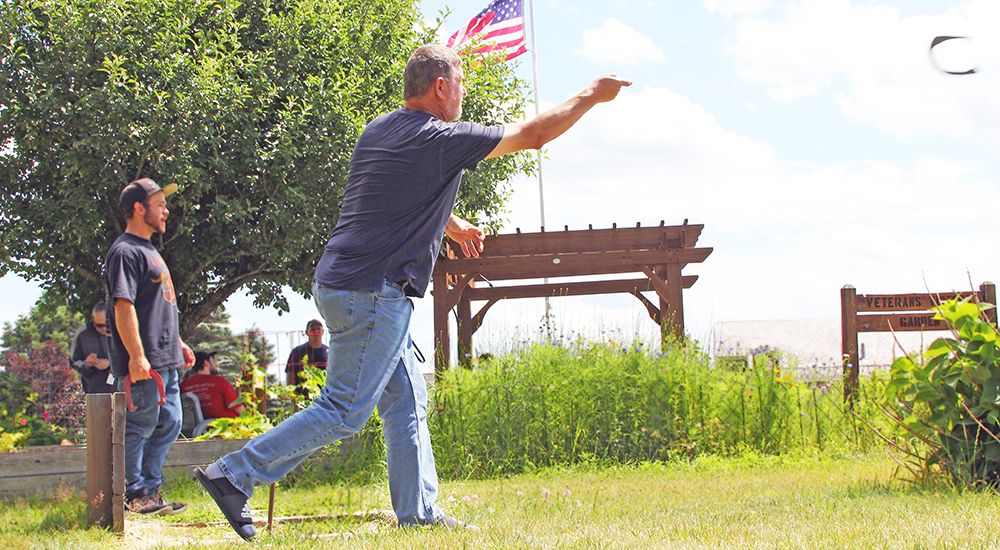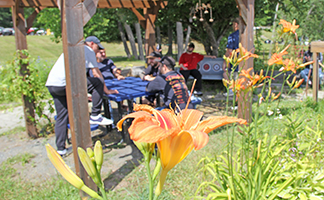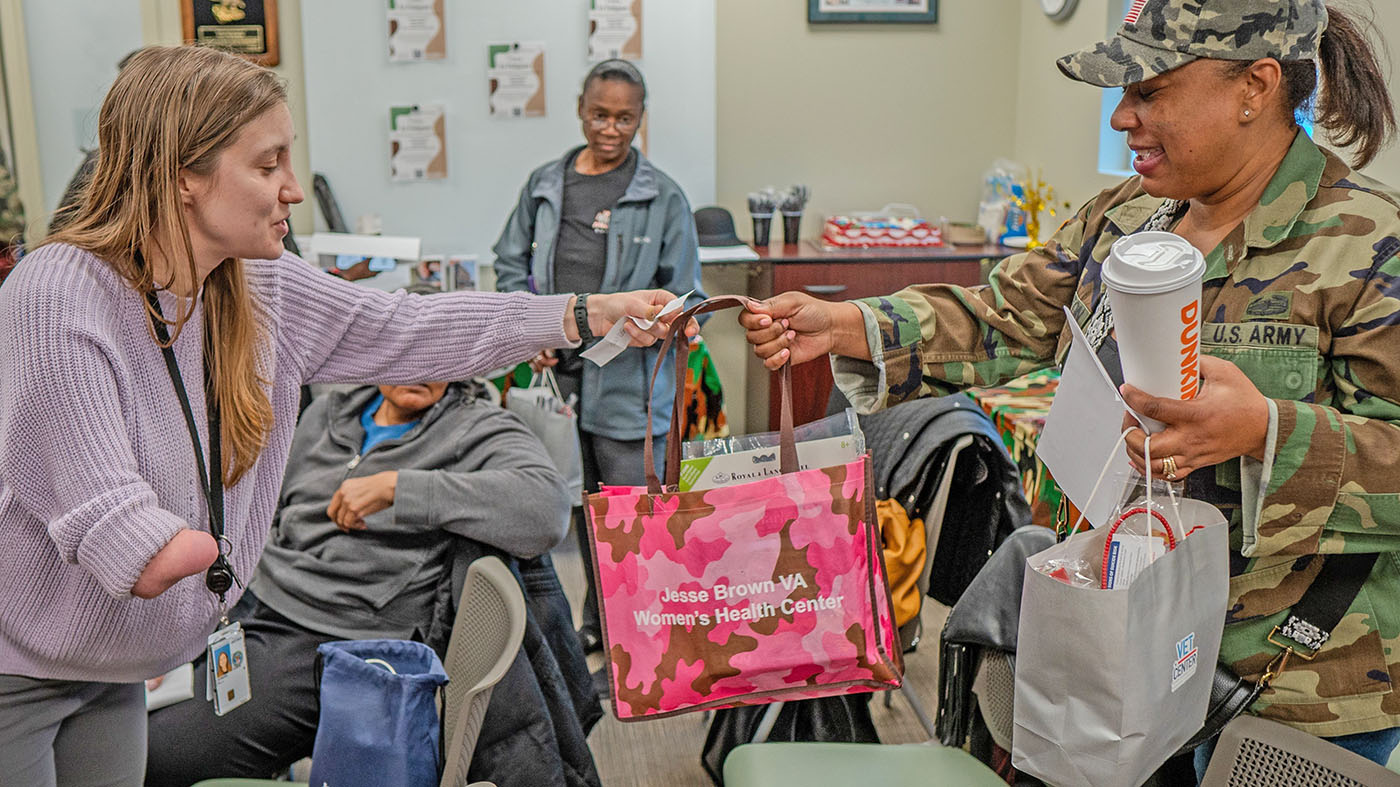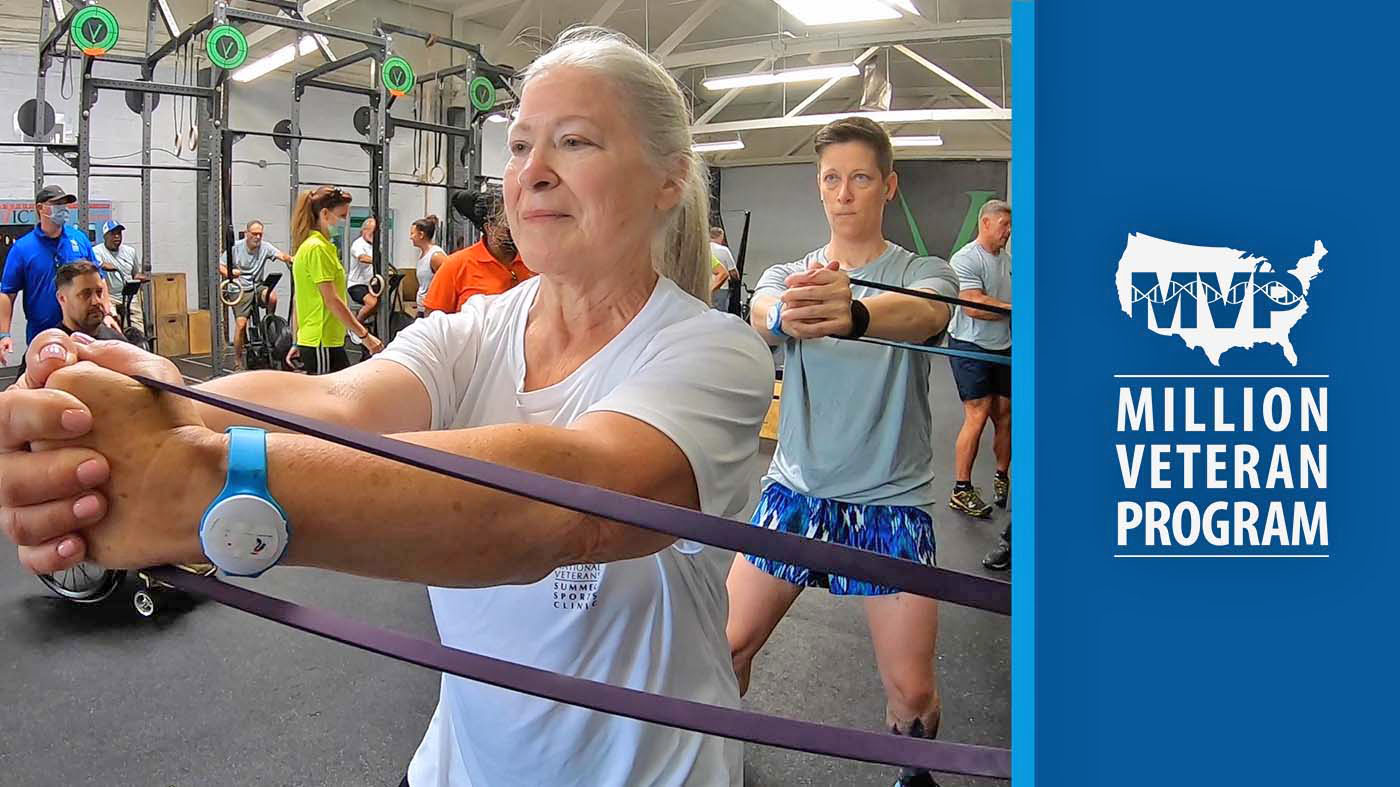Take a moment. Picture yourself deploying overseas during wartime with your unit, one you’ve spent every minute with for years. Now imagine returning stateside and your unit is ordered to disband, your brothers and sisters reassigned to different units across the country. Can you imagine losing your inner most circle, the people who knew you best, and not knowing where to turn with your emotions?
Alex, an Army infantryman, knows this scenario and is able to share his story because of the strength gained with his recovery treatment at the White River Junction VA in Vermont and Bedford VA in Massachusetts.
Alex joined the Army and served in the infantry. Upon return from a deployment to Kuwait, the unit disbanded and soldiers were reassigned to new units, ones that were already established and whose members had gone through their own training together.
Missed the shared experiences of his military “family”
When Alex returned home after three years of service, he didn’t know where to turn or how to talk about his feelings. Opioids seemed to dull these uncomfortable feelings. He spiraled and surrounded himself with people who enabled his opioid addiction. He pushed everyone else away.
“I knew I needed to change,” Alex explained. “I tried many outpatient rehabs, but I never changed my environment or the people I spent my time with. If you hang out in a barbershop, you are going to get a haircut.”
Alex soon overdosed. With his family’s encouragement, he looked to VA for assistance. “I didn’t know there were so many resources for me at VA for Veterans struggling like I was.”
Linda Stone of White River Junction VA, an addiction therapist and the Residential Recovery Center’s program manager, explains that people, places, things, and how you handle your emotions are all key ingredients to good mental health and successful recovery.
Alex applied and was accepted into White River Junction VA’s program. It’s a 14-bed residential rehabilitation treatment program led by the highly trained mental health and behavioral health staff. The program is located on the campus of the medical center in Vermont and designed to help residents gain stability in their recovery from addiction.
Helps Veterans know their strengths and skills
The program also provides treatments for mental health problem, like assisting residents with appreciating their individual strengths and skills as well as personal preferences that will support their recovery.
“I tell each resident they are on their own recovery journey and the resident next to you is on their journey that suits them,” Stone said. “This is not a one size fits all but a spectrum of journeys we travel on with each resident. What works for you may not work for me or him or her.”
Stone and her team customize treatment, but they first want to know, “Are alcohol or substances creating problems that you want to do something about? What are you willing to do?”
The program utilizes a model of care that is based on peer and professional support with a strong emphasis on personal responsibility for one’s behavior and health—and responsibility to the community. Group therapy sessions and a variety of support therapies—like recreational therapy, art therapy and mindfulness—are used to promote skill development while learning strategies to better regulate emotion and reduce mental health issues.
Alex was welcomed by Stone and a few other Veterans
“Linda was so warm and welcoming,” Alex said of his first day. “I was instantly comforted. I quickly began group therapy. This was my first inpatient group experience, and hearing other Veterans share their stories and experiences was my first step forward.”
Army Veteran and VA peer specialist Dale Pushee joined one of the group sessions.
“Dale changed me,” Alex added. “He is the whole reason I am where I am today. Hearing his story and seeing his honesty really made it feel like I wasn’t alone, and I could still be something.”
Peer specialists are VA employees in recovery from mental illnesses and substance abuse disorders who help other Veterans to successfully engage in mental health and substance use treatment.
“I facilitate groups that support the program,” Pushee said. “I share aspects of my own recovery as they correlate to the group. I also offer to meet with the Veterans while they are there and, when possible, I continue to work one-on-one with them after they discharge from the program.”
Domiciliary provides many recovery services
Soon, Alex was at a point in his recovery where he could transfer to Bedford VA’s domiciliary program, a 100-day residential program for homeless Veterans with co-occurring mental health and/or substance abuse related concerns.
The domiciliary provides group and individual psychotherapy along with vocational rehabilitation, re-entry services, recreation therapy, and individualize recovery services to promote independence and ongoing recovery. An interdisciplinary team works alongside residents to meet a variety of needs for issues related to mental health, medical complexities, vocational goals, housing, discharge planning and criminal justice involvement.
It was at the domiciliary where Alex learned skills to maintain a job and saw a posting for Peer Specialist training. Alex thought again about Pushee and applied. He took the training while living at Crescent House Transitional Residence Program in Lowell, Massachusetts.
“There’s help out there. Take control.”
After his peer specialist certification, Alex gained experience in the private sector prior to beginning his employment with VA. For more than two years, Alex has been using life experiences to help fellow Veterans and is most grateful for the collaboration of VA clinicians across New England who helped him get his life back.
Alex today: “There’s help out there. Mental health and substance use issues don’t discriminate. Take control, make a change. Reach out, say something, don’t suffer in silence. You served your country and now it’s time for your country to serve you. VA quite literally saved my life. Maybe it will save yours.”
Topics in this story
More Stories
Navy Veteran and president of the American Medical Association got a colonoscopy and encourages other Veterans to do the same.
Chicago Vet Center and VA gave women Veterans information on VA services available to them.
MVP’s research informs personalized care for Veterans, supporting whole health and beyond.








So happy for Alex getting the help he needed and deserves from the VA. The saying is Vets first but from my findings that is not always the case. I’m a five year navy vet that was is immediate help for drinking and drugging I applied for the in patient drug rehab at the Salt Lake city VA hospital was excepted and had to wait for a bed the bed came open and was giving a date. The day before I was to Check in I get a phone call stating there was a problem and would not be allowed the treatment the reason behind this was one of the counselors knew me from childhood. Sorry but bunch of bullsht so here is this counselor non vet alcoholic being paid big bucks our money getting the help that he needs everyday he goes to work and has the authority to dictate who is in and who isn’t. So if he knew 10 of the vets needing help he could wave his magic stick and say nope. Don’t care if your a disabled vet or not. What if the vet ended up committing suicide? Then what? So honestly Vets first is kind of hard to swallow. Tell me wut you think k about this situation. I would love to get this changed for future vets
Wow! I’m so glad you are on the right journey! I know some of the loss you felt. I was stationed overseas and was severely injured . Spent a long time recovering. The navy decided that discharging was way to go. I too had that sense of emptiness. Unfortunately I turned to alcohol. I was a big time drinker. I could go through a half gal. Of vodka every 2 days. I went to a civilian(if you will)rehab….. I was sober like ten yrs. Things in my life spiraled out of control and drinking was my answer. For the next 15 yrs I drank constantly. Finally I went into the va in Maine. I met a tiny little lady who ran the program. She was an angel. She was the toughest , no BS, STRAIGHT FORWARD ,honest, caring trusting person you could meet. Her methods were brutal honesty on her part and everyone in the program. You either gave 100% or she would come down on you like a ton of bricks. Thanks to her never giving up on me ,her strength when I had none , her love and caring, I have sober 22 yrs. Her name was Tommy. She got cancer after I graduated the program unfortunately she died. But she passed she wrote me a letter ,telling how proud she was of me. I still have that letter.. irs something I will carry for the rest of my life.
Gary
I’m glad Alex found the help he needed and he was ready for change . My own Journey has been a long one diagnosed with PTSD Chronic which I aggravated with substance abuse mainly cocain. I’m in a better place now thanks to VA. There is help you just have to reach out and make up your mind you want to change!